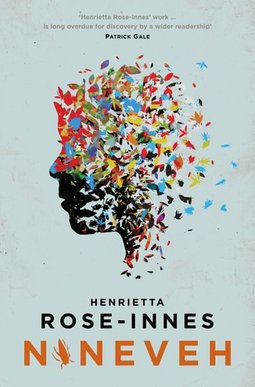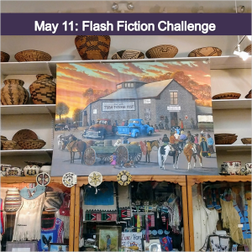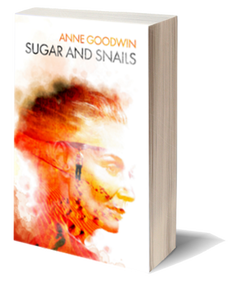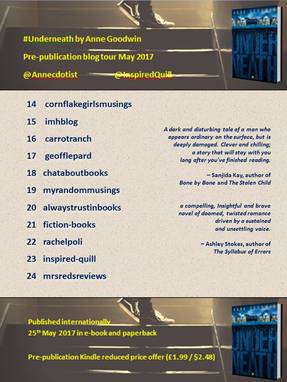| It’s strange, what disgusts people. Who would scorn the friendship of a gecko, for example: golden-eyed, translucent-skinned, toes splayed on a farmhouse wall? Who could resent a long-legged spider, knitting its silver in the corner of the room? But they do: people will pay to have them killed, poisoned, destroyed. |
Despite featuring the second fictional property developer I’ve encountered in as many months, Nineveh is a refreshingly original story that works on multiple levels. Rife with symbolism on the competition between humans and nature; cracks in the system; the interaction between inner and outer that make up the concept of home; and, of course, this being South Africa, the colonisation and suppression of indigenous peoples. But it works equally well as the portrait of a wounded, fiercely independent and prickly woman and strained family relationships. Katya and her sister have chosen different routes to managing the legacy of their father’s violence, while their mother’s sudden absence when Katya was three has barely been mentioned.
If that sounds a bit grim, and the wildlife a bit creepy, let me add that the story unfolds through engaging, concise and witty prose, and there’s a hope for future redemption in the easy-going and forgiving nature of Katya’s nephew. First published in South Africa in 2011, I received my copy courtesy of the UK publisher, Aardvark Bureau.
| My review of Nineveh has been lurking on my laptop for a few weeks, awaiting a suitable pairing with either another novel or the right flash fiction prompt. The latter arrived first in the form of a challenge to write a 99-word story on trading. While Katya trades in her expertise in an area others shy away from, my flash is set in the marketplace, but the gap between wealth and subsistence living is relevant to both. |
Don’t take the price quoted at face value, said the guidebook. Bargaining is taken for granted here. When she kicked off at five hundred, I offered two. She replied with four, I raised it to three; we danced around and shook hands at three-fifty. How could she smile when I’d purchased ten hours of her time for the price of a coffee back home? Maybe I should’ve stuck at three hundred. Maybe I should’ve bought a sackful to sell on at a profit. Maybe I should’ve bought a different guidebook: a guide to building a fairer world.
| My short story on a similar theme, ”Silver Bangles”, was published what feels like yesterday, but turns out to be 2013. There’s also a significant marketplace seen in my debut novel, Sugar and Snails, which takes place at the Khan el Khalili in Cairo: |
We wandered along avenues of carpets too precious to tread on; strings of beads dripping like wisteria under canopies of fine cotton and silk. Ranks of brassware glinting up to the ceiling, plates and flasks of silver and gold; pyramids of blue pottery and woven baskets clinging to the walls; mountains of spices like children’s powder paint, perfuming the air with ginger and cinnamon and other smells I couldn’t name. I could imagine the Three Kings shopping here for their gold, frankincense and myrrh …
We worked it like a single organism, attuned to each other’s movements like Butch Cassidy and the Sundance Kid, like Ginger Rogers and Fred Astaire. The papyrus for Trevor, a turquoise scarab brooch for my mother and a vase shaped like a long-necked cat for Patricia. Me the excited child, Dad the withholding parent; I’d never seen him so playful. Yet, when I approached a stall selling traditional Arabic man-dresses, a cloud crossed his face.
| But it’s time to put that aside, as the blog tour for my second novel, Underneath, kicks off tomorrow (which might mean today, yesterday, three weeks or three years ago by the time you read this). Which means I’m about to find out whether second novels really are difficult. In the eleven days up to publication there’ll be a mixture of reviews, Q&As and guest posts. I hope you’ll find something of interest in the mix. |

























 RSS Feed
RSS Feed





















